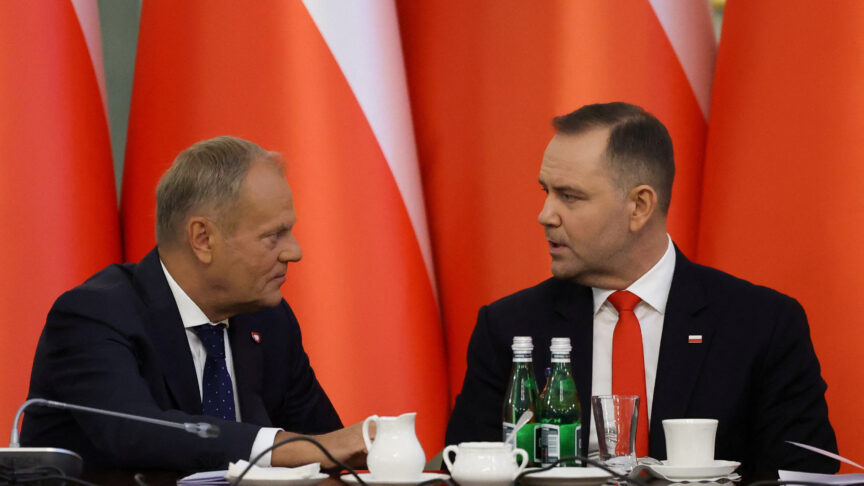Under the waves: Turkey’s Black Sea gas discovery and relations with Europe
Turkey’s discovery of a large gas reserve in the Black Sea could benefit its economy in six or seven years, but it will not ease Turkish-European tensions in the Eastern Mediterranean.
European officials spent much of August nervously eyeing the mounting tensions between Turkey and EU member states, worried about the possibility of military escalation in their dispute over maritime rights in the Eastern Mediterranean. Yet events in another sea have made the headlines in Turkey. President Recep Tayyip Erdogan announced on 21 August that Turkey had discovered a significant amount of natural gas in the Black Sea, and even promised that it would reach consumers no later than 2023. “Turkey made the biggest discovery of natural gas in its history in the Black Sea,” Erdogan noted, suggesting that the country would soon become a net exporter of energy.
Markets have not quite shared Erdogan’s optimism: after an initial rally, the lira slipped back, resuming its months-long battle against decline. The discovery of 320 billion cubic metres (11.3 trillion cubic feet) of natural gas in an uncontested part of the Black Sea is certainly good news for a country that imports nearly all its energy. Even with the reduced energy prices of recent times, Turkey’s energy bill was no less than $41 billion in 2019. And the new gas field, renamed “Sakarya”, has the potential to meet up to $80 billion of Turkey’s energy needs over several decades, according to Fatih Birol, executive director of the International Energy Agency.
But, as analysts are not yet clear about the exact drilling costs or commercial viability of the field, Erdogan’s 2023 target may be unrealistic – at least requiring billions of dollars of investment to make the gas commercially viable. The gas field is roughly 2km below the seabed and 170km off the Turkish coast. More importantly, it is unquestionably in Turkish territorial waters.
Erdogan has already announced that Turkey will continue its exploration activity in the Mediterranean.
Still, an opportunity for energy diversification can benefit Turkey, particularly given that it is experiencing an economic downturn and that it has energy needs equivalent to around 45-50 billion cubic metres of gas per year. Turkey’s reliance on Russian gas has long been a problem for Ankara, as the country imports its natural gas primarily from Russia, Iran, and Azerbaijan. And the Black Sea discovery comes at a time when Ankara’s contract with Russian energy giant Gazprom is up for renewal. As Turkey has been paying a high price for Russian gas, Turkish officials hope that the Black Sea discovery, with its potential to provide a larger reserve, will convince the Russians – and, later, the Iranians – to bring down their energy rates.
Despite its lack of domestic energy resources, Turkey has emerged as an energy hub of sorts, with oil and gas pipelines from Iraq and the Caucuses converging in Anatolia. One significant recent infrastructure development has been TurkStream, a planned pipeline that will connect Russian gas underneath the Black Sea to the Turkish energy grid, then to southern Europe. While the construction of TurkStream is under way, Ankara has attempted to reduce its dependence on Russia by importing liquefied natural gas from several countries, including the United States. Turkey has commissioned a Russian-led consortium to build the country’s first nuclear power plant, and has also been concentrating on coal and hydroelectric power.
But what has really grabbed Ankara’s attention lately has been the rich oil reserves of the Eastern Mediterranean – and the Black Sea discovery is unlikely to change that. Erdogan has already announced that Turkey will continue its exploration activity in the Mediterranean. And, since the collapse of German-brokered talks between Turkey and Greece last month, the prospects of a new showdown at sea have risen.
In the Mediterranean, competing claims on maritime borders, exclusive economic zones (EEZs), and energy resources have put Turkey, Greece, and Cyprus at loggerheads with one another. Much of the problem stems from Greek claims on the maritime border of islands that are close to the Turkish mainland – and Ankara’s counterargument that these islands cannot have the same EEZ rights as the Greek mainland, partly because this would leave areas on the Turkish coast closed off to Turkish ships and drilling projects. Meanwhile, a proposed gas pipeline between Greece, Cyprus, Israel, and Egypt has excluded Turkey, leading Ankara to pursue a more assertive policy in the area by starting gas exploration off the coast of Cyprus and Turkey.
The European Union is threatening to impose sanctions on Turkey. France has already increased its military presence in the area to support Greece and Cyprus – and joined recent military exercises with Italy, Greece, and Cyprus. Last week, the Turkish navy issued an advisory message, known as “Navtex”, on its intention to hold exercises off the coast of Iskenderun, north-east of Cyprus.
While the Black Sea discovery might mean good news for the Turkish economy in six or seven years, the Eastern Mediterranean continues to be the top issue in Turkish-European relations today. “We will not make any concessions,” Erdogan has said – but he also signalled that he is open to dialogue with Greece on the issue.
The European Council on Foreign Relations does not take collective positions. ECFR publications only represent the views of their individual authors.


